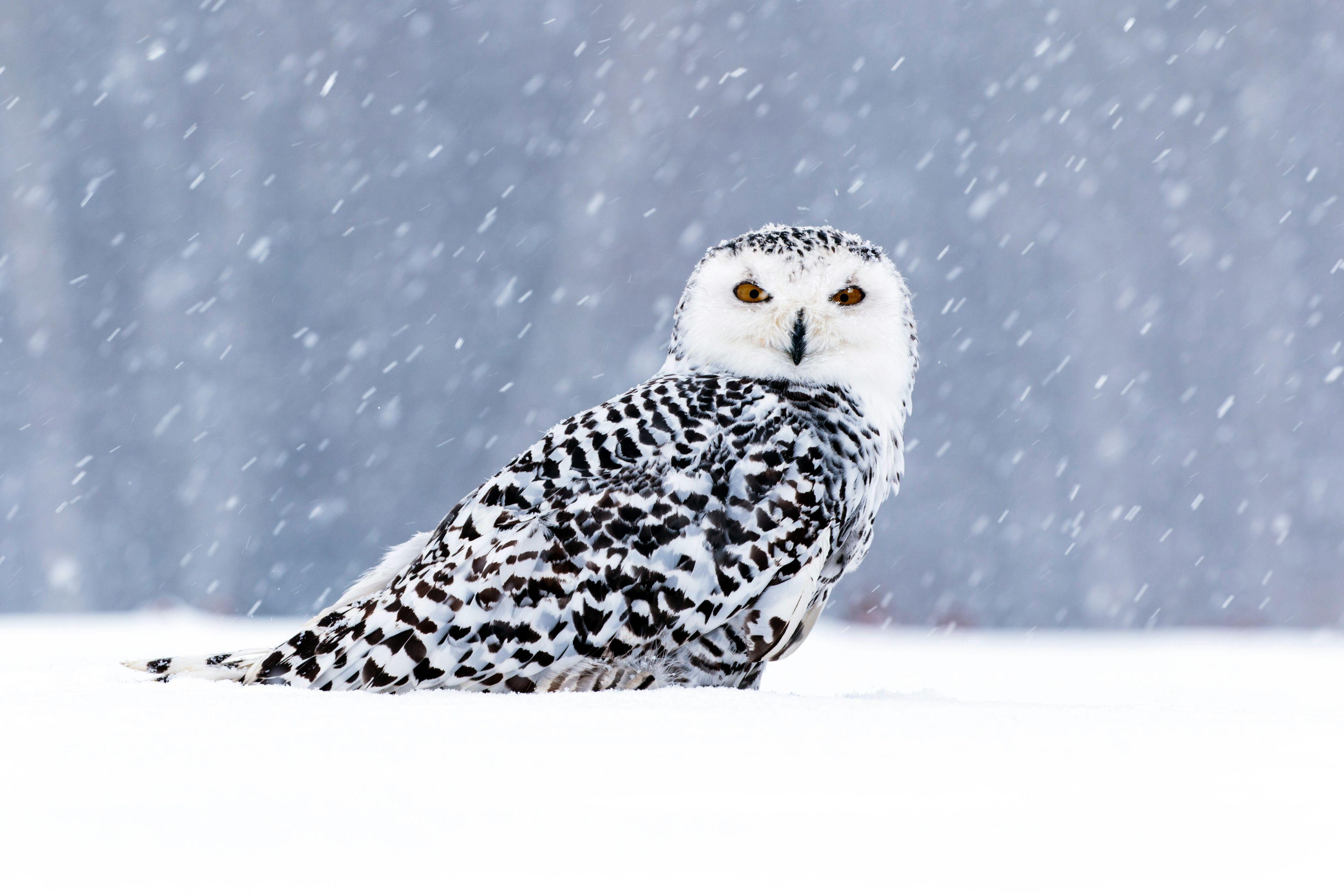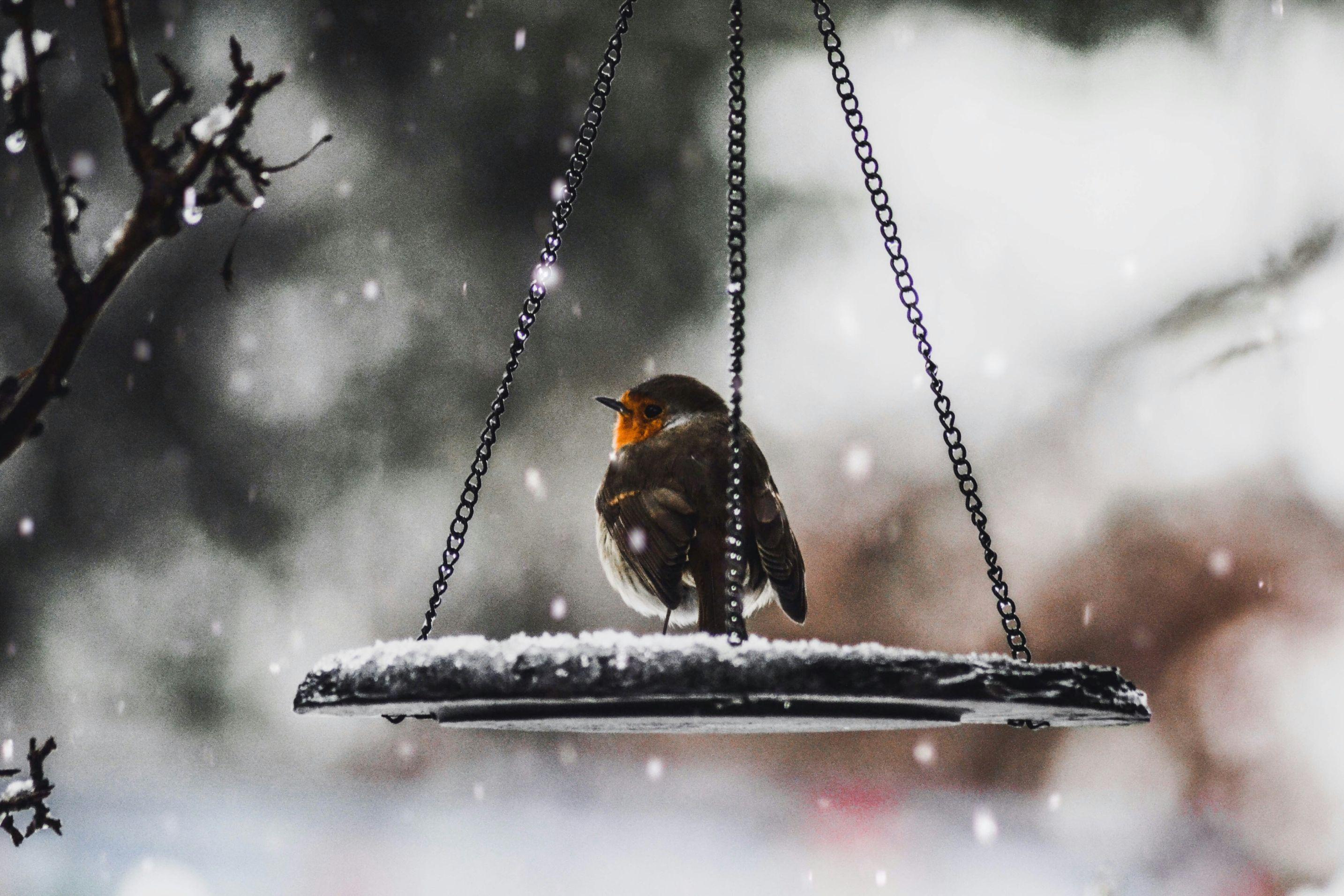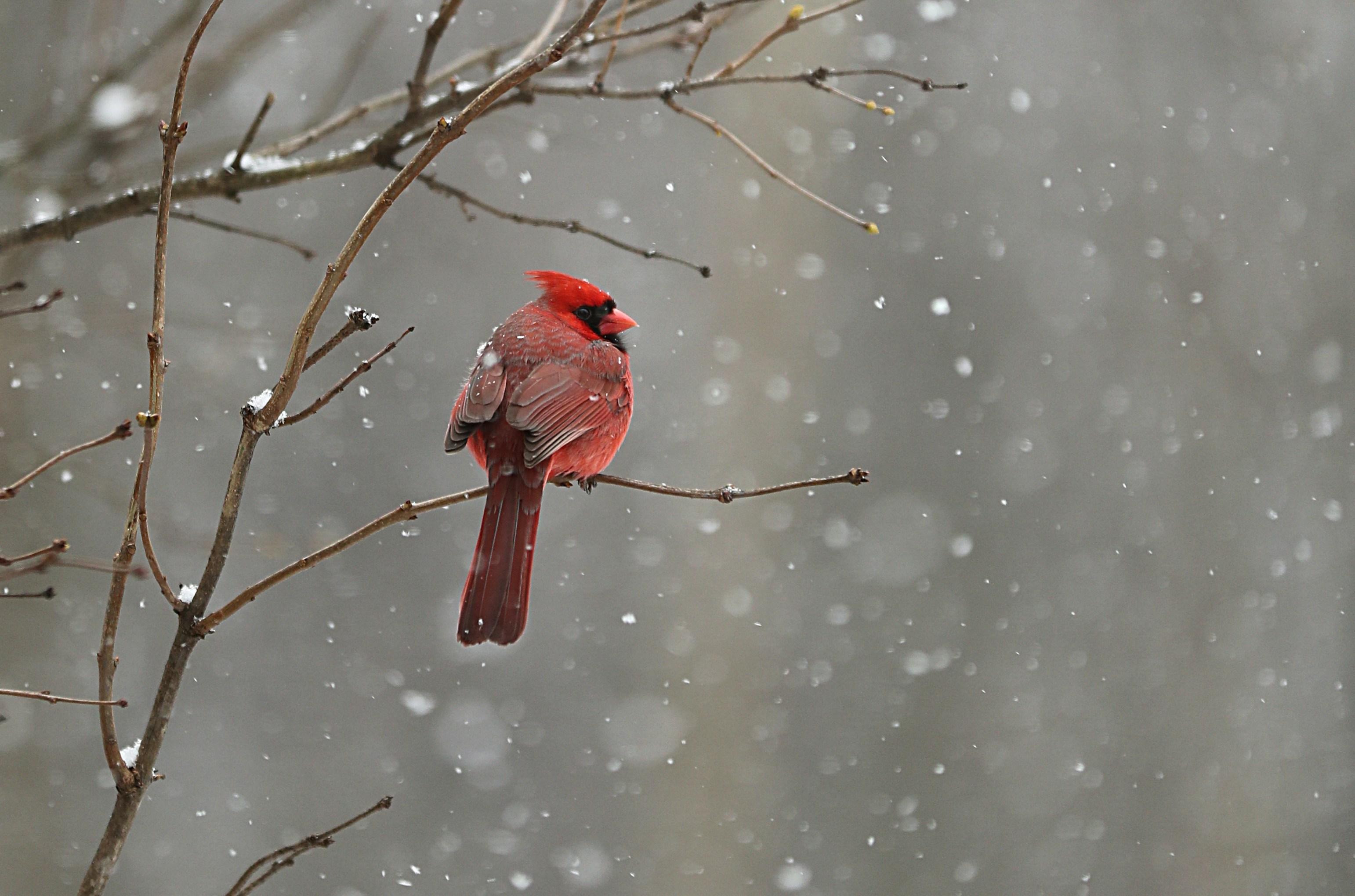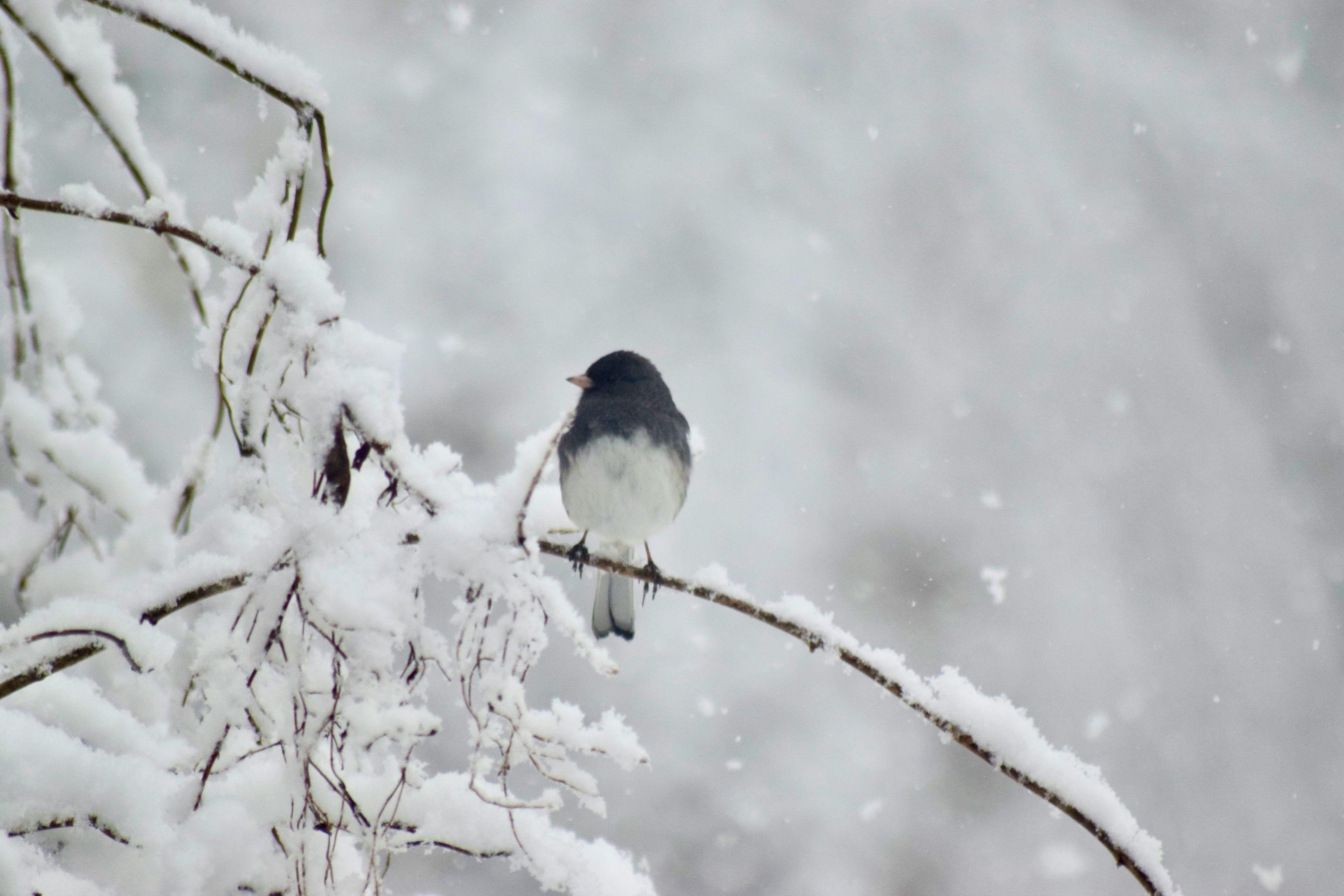Do Birds Ever Get Cold? Here's What to Keep in Mind While Birding in the Winter
Some birds are built for cold weather, while others brave it in less intense conditions.
Published Jan. 14 2025, 12:46 p.m. ET
If you have a bird feeder in your backyard, you might be surprised to see birds happily eating seeds well into the winter months. After all, most people learn in school that birds fly south for the winter. Thankfully, some birds appear to have adapted well to colder weather, while others tolerate reasonable, moderately chilly weather.
If you are wondering how cold birds get during the winter, your empathy and compassion is appreciated. Here's what to know, from bird experts, whether birds get cold in the winter and how you can help support the collective well-being of birds in the winter.
Do birds get cold like humans do?
According to the U.S. Fish & Wildlife Service, birds shiver in the cold, which aids in warming their bodies, similar to humans. Also, just as humans enjoy cuddling in the winter to keep warm and get cozy, birds have been known to huddle closely to conserve body heat, too.
According to the National Audubon Society, the feathers on a bird's body are akin to humans dressing in layers. During the winter months, birds who live in very cold environments grow heavier feathers to adapt to the season, which also helps repel snow and rain.
Just as the hairs on our arms stand up as we get the chills, birds may appear "puffed up," which helps trap heat and maintain a safe body temperature.
Finally, just as we may appear to gain a few extra pounds in the winter season, birds may similarly bulk up during the colder months to maintain energy stores and add further insulation. It is not uncommon to see birds — and other visitors — flock to feeders to pack on a little extra weight, so be sure to keep your bird feeder full.
Are birds cold blooded?
According to Live Science, birds are warm-blooded and boast a higher metabolism than other mammals of their size.
According to All About Birds, blood flowing to their body is warmed by blood that flows to their feet. Birds have fast circulation, so the cooler blood in the feet doesn't remain long enough to reach freezing temperatures. The intricate systems within birds help them avoid freezing while maintaining safe core temperatures.
Tips to help birds survive the winter weather:
There are several ways to help our feathered friends survive the winter weather. “It comes down to two things: food availability and calorically dense nutrition,” the National Audubon Society's John Rowden tells Birds & Blooms.
Aside from keeping a well-stocked bird feeder, you should also provide fresh water to keep birds hydrated, stock your garden with seed-bearing flowers, and keep snow and ice off of feeding surfaces so they have fewer sources of icy obstacles to contend with.



